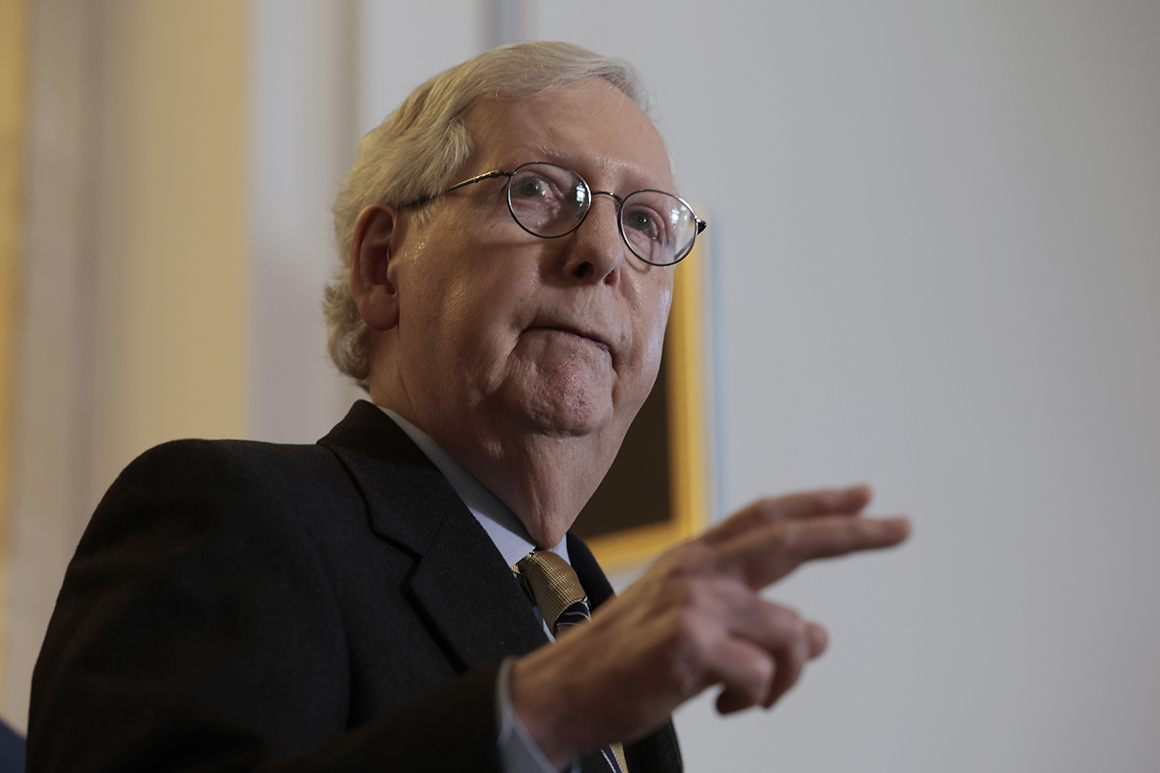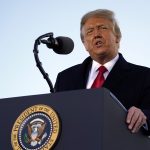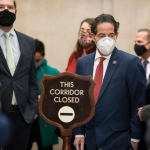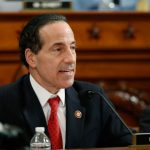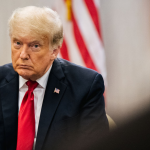Mitch McConnell is signaling he’s open to reforming the Electoral Count Act, one year after Senate and House Republicans objected to certification of President Joe Biden’s win ahead of an attempted insurrection.
Democrats are pursuing more sweeping election reforms and federalization of elections, but some lawmakers in both parties are also suggesting there may be more modest reforms that could pass on a bipartisan basis. The GOP leader said in a brief interview that he would be open to entertaining changes to the 1887 law, which allows members of Congress to dispute election results.
“It obviously has some flaws. And it is worth, I think, discussing,” McConnell said Wednesday.
Senate Democrats plan to hold votes on broader election reforms by Martin Luther King Jr. Day, and Majority Leader Chuck Schumer is threatening to change the Senate rules if McConnell leads another GOP filibuster. They want to pass anti-gerrymandering legislation, enshrine Election Day as a holiday and beef up early voting, though doing so would require Democratic Sens. Joe Manchin and Kyrsten Sinema to agree to weaken the filibuster to jam through that legislation on a party-line vote. Republicans almost uniformly oppose Democrats’ proposals.
The discussions on changing the Electoral Count Act to make it harder for lawmakers to derail election certifications are in their earliest stages in the Senate. And Schumer scoffed at the possibility of a small-ball deal on Wednesday, the day before the Jan. 6 anniversary.
“The Electoral Count Act [reform] says you can rig the elections anyway you want and then we’ll count it accurately,” Schumer said in an interview. He said he has “very little hope” for a bipartisan deal that includes the more comprehensive reforms his party is seeking to campaign finance and voter access. “We’ve tried for four months and got no support.”
Some scholars believe, given the impasse on broader election reform and Democrats lacking the votes to change the filibuster, the two parties should pursue something that would prevent a replay of Jan. 6, 2021. On that day, House and Senate Republicans teamed to object to Biden’s win in several battleground states, including Arizona — and the certification was interrupted by a violent mob that overran the Capitol.
Eventually, Congress reconvened and finished the job after several people died during the attempted insurrection and scores of police officers were injured. Yet 139 House Republicans and eight Senate Republicans still voted not to certify some of the results that night.
Sen. Chris Coons (D-Del.) said because he’s “an optimist” there’s some merit to at least engaging Republicans on the question of the Electoral Count Act. While he prefers far more sweeping reforms, he said Republicans simply just do not see eye-to-eye with Democrats on expanding voter access.
“If there remains any path forward on making changes to how we protect the Electoral College process and how we ensure a free and fair vote, I’m open to the conversation,” Coons said in an interview. He described his talks with Republicans “as just the tiniest door crack.”
